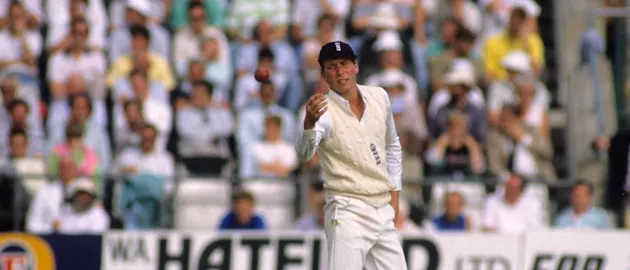U19 CWC: Once a captain always a captain?


If the ICC U19 Cricket World Cup is a chance for young cricketers to strut their stuff on a global stage, then it’s also a chance for developing captains to gain valuable experience of leading their national side.
But does skippering your side in the world’s leading junior tournament mean you are a shoo-in to lead the senior side?
The inaugural competition in 1988 boasts perhaps the largest pantheon of skippers, starting with Brian Lara. He holds the record for the highest Test score – 400 not out while captaining against England in 2004 – although his captaincy record is not particularly impressive, winning only 10 of his 47 Tests as West Indies captain. Michael Atherton also skippered in 1988 and is England’s second longest-serving skipper after Alastair Cook, who featured in the 2004 competition but not as captain.
Pakistan’s skipper Inzamam-ul-Haq was another captain to feature in 1988 and held the same role in the senior side for seven years, losing only one home Test series in that time. Additionally, that year unearthed Sri Lanka’s Sanath Jayasuriya, who skippered his country from 1999-2003, recording an impressive 47 per cent win rate.
It was another 10 years before the next tournament and it didn’t possess the same conveyor belt of future skippers. England won the tournament under the stewardship of Owais Shah, but he didn’t go on to captain his country at senior level.
The next competition in 2000 was more memorable, with Australian Michael Clarke breaking through. Clarke’s boys lost to India in the semi-final, but he went on to enjoy success leading his nation’s Test side, memorably orchestrating a 5-0 battering of England in the 2013/14 Ashes Down Under.
The tournament’s fifth year in 2002 had a plethora of future captains, none more impressive than Ross Taylor. He led New Zealand and went on to captain the Kiwis for 14 Test matches, although only managed series wins against Zimbabwe. Pakistan’s Salman Butt also featured, though his five-year ban marred his short spell of captaincy.
Canada’s 2002 skipper Ashish Bagai became his country’s longest-serving ODI captain by some distance, his tenure stretching seven years – the next closest is three. Zimbabwe’s Tatenda Taibu was named Player of that Tournament, and went on to skipper both Test and ODI sides. Dwayne Bravo also captained that year and, for a time, went on to lead West Indies in limited-overs cricket and a solitary Test match.
The tournaments in 2004 and 2006 saw a vast influx of captains, with West Indies’ Denesh Ramdin skippering the side for two years. Meanwhile, 2006’s tournament bred Mushfiqur Rahim of Bangladesh, who has captained most Test matches in the country’s history. Eoin Morgan also featured that year for Ireland and remains the U19 World Cup’s highest-ever run-scorer, but has gone on to skipper England at T20I and ODI level. Sarfraz Ahmed, another 2006 alumnus, now leads Pakistan.
In 2008, arguably the biggest star in world cricket was unearthed: Virat Kohli. He has become a hugely impressive captain of India, with an impressive 60 per cent win record in Tests, while averaging over 50 in all formats of the game. Kane Williamson also made his name in that competition and is currently leader of New Zealand across all formats. Although both Joe Root and Steve Smith, the other members of the ‘Big Four’ contemporary batsmen, have played in U19 Worlds Cups, neither captained their side.


